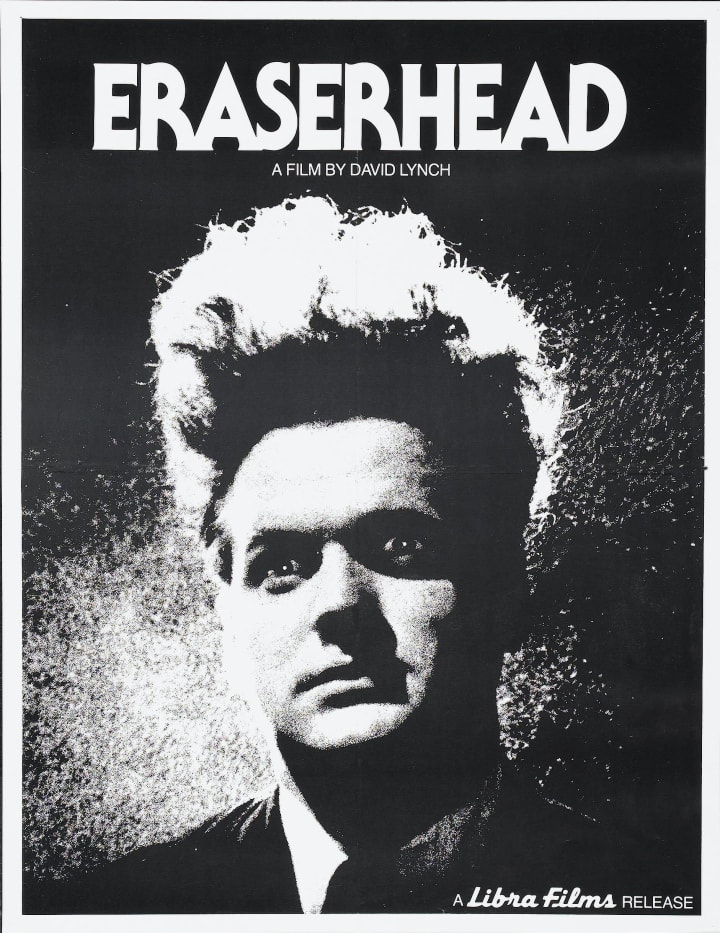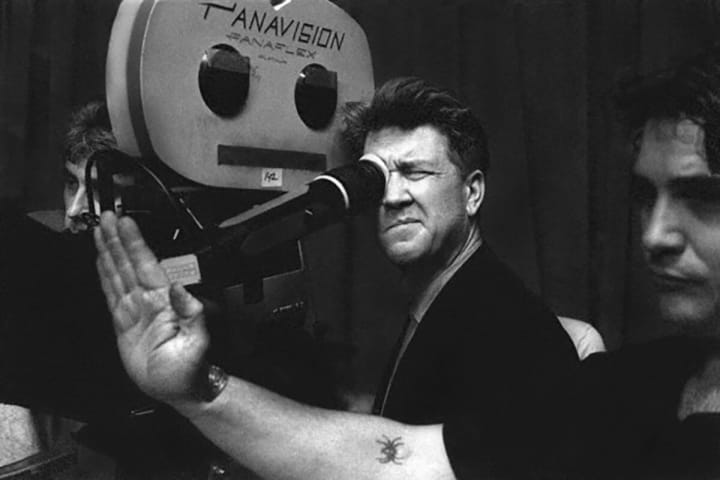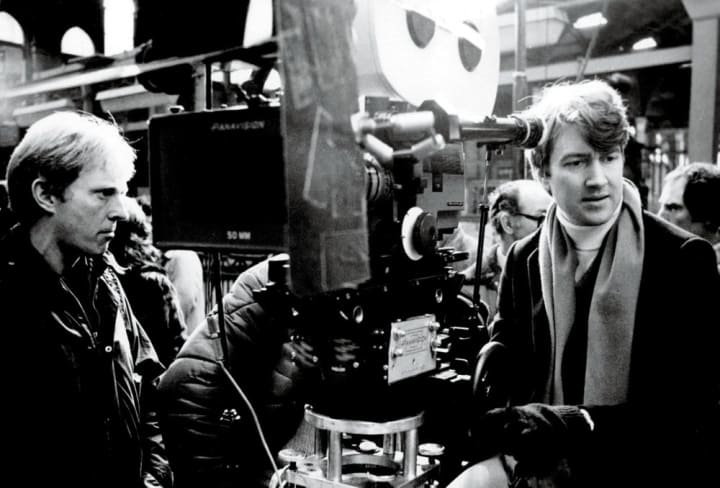A Filmmaker's Guide to David Lynch
b.20-01-1946

A Short Biography
On the 20th of January, 1946, David Lynch was born in Montana, USA to a research scientist and an English tutor. Lynch moved around a lot as a kid going from places like Idaho all the way to Washington and Virginia. By the time he was of university age, he was studying at the School of the Museum of Fine Arts after a transfer which meant he moved to Boston. After a failed 3-year trip to Europe to become an inspired painter, Lynch returned to the USA after only 15 days. He returned to Virginia but, found his parents had moved to California and so lived with his friend. He and his friend then moved to Philadelphia and enrolled in art school again. It was there that he met his wife and then she gave birth to a daughter shortly after their marriage. Her name was Jennifer Lynch.
The family moved to Fairmount and Lynch got a daytime job in order to make his first short film entitled "Six Men Getting Sick Six Times" (1967). After this inspiration, he made another short film entitled "The Alphabet" (1968). After learning about the American Film Institute and how they were, back then, giving out grants to new and upcoming filmmakers, Lynch decided to apply for a grant of around $7'200 and received initially $5'000, but was given the rest later after he sent in a copy of "The Alphabet" (1968) to support his claim for a grant.
In 1971, after making the short film "The Grandmother" - Lynch moved himself and his family to LA and began studying film at the AFI Conservatory. After a year though, Lynch wanted to leave and the dean implored him to stay by stating that he was one of the school's best students. Lynch returned on one condition that he wouldn't be disturbed or interfered with when writing his new script. This script was titled "Eraserhead".
Eraserhead and Beyond

Despite the fact that the script was only 21-pages long, Lynch was able to start filming "Eraserhead" on the 29th of May, 1972. In order to pay for the film, Lynch applied for a $10'000 grant and yet, after getting it realised it wasn't enough. He asked his father for some money and also took up delivering newspapers in order to pay for the filmmaking process. Due to the strain, Lynch divorced his wife on amicable terms and remarried a woman named Mary Fisk.
Due to financial difficulties, "Eraserhead" kept stopping filming and staring again, in 1974 - Lynch made a short film called "The Amputee" to present to the AFI. "Eraserhead" was finally finished in 1976 and Lynch entered it for the Cannes Film Festival in which some reviewers loved it whilst others despised it. It was therefore, not selected for screening. The same thing happened at the New York Film Festival and yet, it was screened at the LA Film Festival. After getting 'midnight movie' status, Stanley Kubrick stated that "Eraserhead" was one of his favourite films of all time.
After directing "Eraserhead", Lynch went on to work with Mel Brooks, Sir Anthony Hopkins and John Hurt on the film "The Elephant Man". After making some alterations of surrealist value to the script and characters, Lynch received the nominations for Best Director and Best Adapted Screenplay at the Academy Awards. The film received a total of eight Academy Award nominations.
Motifs in David Lynch's Films

David Lynch went on to become one of the world's favourite avant-garde/experimental directors with a flair for social criticism. He is still a visionary at his age and, as you can see, never gave up on his dream. He worked hard and harder to get where he is today and, as one of the most respected directors in the world, he has become something of a myth between the whispers of aspiring filmmakers. His story is something amazing and he work is incredible - I certainly hope that in 100 years from now there are still people watching the films of David Lynch because they are so technically brilliant.
The motifs in David Lynch's films are quite easy to grasp but in reality, only he really knows what they mean. Let's have a look at some of them:
- Surrealism - dreamlike imagery is used a lot in Lynch's films in order to give vision to the subconscious
- Industry - machinery and dystopia feature a lot in Lynch's films especially when focusing on social criticism
- The Criminal Underworld - There is something about violent criminal behaviour that always features quite brilliantly in Lynch's films as if he's trying to get us to look at our own culture's violent behaviours
- Deformity - Physical/Mental deformity feature at lengths with mental deformity featuring in "Eraserhead" and physical deformity taking centre stage in "The Elephant Man"
- Female Identity - The fractured female identity is common in films by Lynch. He features women as having multiple identities either by mental deformity or via deception - it has so far worked in his favour.
- Characters as the manifestation of societal fear - in works such as "The Elephant Man" Lynch attempts to guide certain characters as being the manifestation of some kind of collective fear amongst society. Again, this links to physical deformity as being part and parcel of difference. Difference is normally the key collective fear that is explored
David Lynch's Films Ranked Worst to Best

Here's the ranking!
10. Twin Peaks: Fire Walk With Me (1992)
9. Inland Empire (2006)
8. Lost Highway (1997)
7. Wild at Heart (1990)
6. The Straight Story (1999)
5. Blue Velvet (1986)
4. Mulholland Drive (2001)
3. Dune (1984)
2. Eraserhead (1977)
1. The Elephant Man (1980)
About the Creator
Annie Kapur
200K+ Reads on Vocal.
English Lecturer
🎓Literature & Writing (B.A)
🎓Film & Writing (M.A)
🎓Secondary English Education (PgDipEd) (QTS)
📍Birmingham, UK






Comments
There are no comments for this story
Be the first to respond and start the conversation.